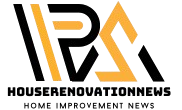| Expenses | amount |
|---|---|
| purchase price | $500,000 |
| Land transfer tax | $6,475 |
| Legal fees | $1,695 |
| Down payment (20%) | $100,000 |
| Mortgage amount (amortized over 25 years) | $400,000 |
| Mortgage rate | 4.5% fixed |
| Total mortgage interest over 25 years | $264,168 |
| Property value appreciation (annual average) | 3% |
| Monthly rental income (rising at 2% annually) | $2,000 |
| Annual property tax | $3,000 |
| Monthly condo fees | $250 |
| Average miscellaneous annual costs (insurance, realtor fee to find a tenant, occasional vacancies; these could vary significantly from year to year) | $2,000 |
The rental income comes to $24,000 in the next year, while the mortgage payments are $26,567 and the other expenses total $8,000.
Do the math and you can see this property runs cash-flow negative by $10,567 over the next year (about $881 per month). Sounds brutal, right?
If we assume the investor does not claim depreciation on the property, there is also a tax payable on the net rental income each year. Depreciation—called capital cost allowance (CCA)—can be used to bring your net rental income down to $0, but not to create a loss. However, upon sale of the property, your previously claimed CCA was brought into income and typically taxed at a high tax rate.
The mortgage principal payments of $8,914, over the first year of the mortgage, are not tax deductible. Only rental property interest can be claimed on your tax return. So, the property has a small loss of $ 1,653 for the year for tax purposes.
A rental loss can reduce your other income and result in a tax refund. Tax savings based on a 35% tax bracket (about an average of $75,000 of income across the country) would be $579. That means the owner has a net cash-flow outlay of $9,988 for the year to carry the rental property after the tax refund.
For this property to be cash-flow neutral, with rental income covering the expenses and the mortgage payments (assuming a 25-year amortization), an investor would need a down payment of about $259,000 or 52%.
Other financial considerations besides cash flow
There are other considerations. Cash flow alone is not necessarily the best way to assess the numbers. Here is how I would evaluate the property as an investment.
With a purchase price of $500,000, the property actually costs $508,170 including land transfer tax and legal fees. If the property’s value grows, at 3%, to $515,000 after the first year, and the $400,000 mortgage is paid down to $390,325, that means $124,675 of net equity.
